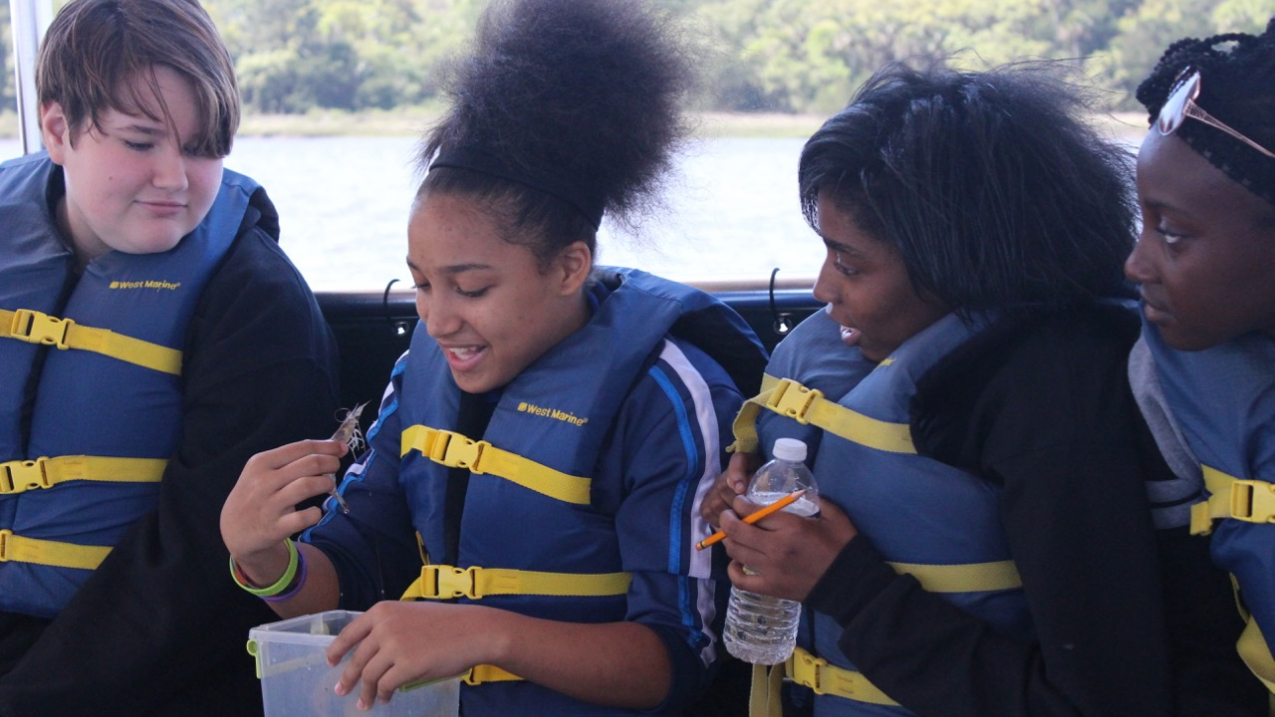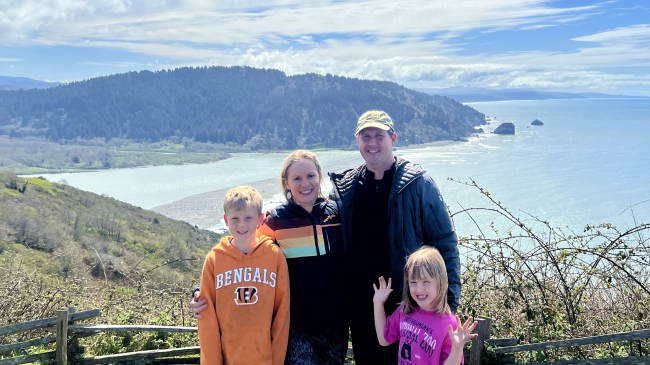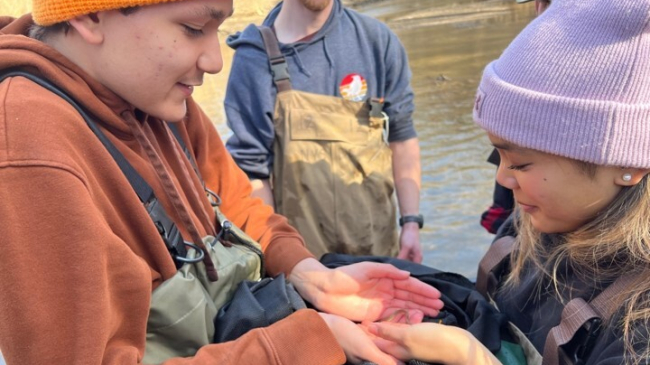Every year students from RB Stall High School in North Charleston, South Carolina embark on a series of field studies with the ACE Basin National Estuarine Research Reserve that help them explore not only the nearby estuary, but also careers in marine science.

Students observe a White Shrimp on the E/V Discovery while exploring the Edisto River in the ACE Basin National Estuarine Research Reserve. At the reserve, students conduct fisheries research alongside scientists and, in the process, are introduced to a wide array of careers in marine science and environmental resource management. (Image credit: Erin Weeks/South Carolina Department of Natural Resources)
Students from this urban community, composed of 64% minority citizens, lack access to outdoor field experiences, have little knowledge of career opportunities in marine or environmental science, and are underrepresented in science, technology, engineering and math (STEM) career fields. Many of these students have had little exposure to the natural environment, and few have ever been on a boat.
The ACE Basin National Estuarine Research Reserve is doing its part to help provide students from all backgrounds with environmental experiences and opportunities. Throughout the semester, students from RB Stall High School visit the South Carolina Department of Natural Resources Marine Resources Complex for hands-on experiences aimed at increasing their awareness and appreciation of estuarine ecosystems and exposing them to careers in marine science.
Thanks to a partnership with the College of Charleston Grice Marine Laboratory, students can explore local opportunities with the university. Students also conduct research aboard the Educational Vessel Discovery, gaining skills in fisheries surveys, water quality analysis, and scientific inquiry. In the salt marsh, students investigate how sea level rise is affecting the local marine environment and community. Through these activities, students learn how healthy estuaries are beneficial to coastal communities, including their own community.
Did you know that many of my kids have never left North Charleston, let alone seen the ocean, or been on a boat? For many of them, the experiences we give them on these field trips will be some of their fondest.
Katherine Cruz, RB Stall High School Biology Teacher
Over 1,900 graduating seniors have been exposed to the world of estuarine and marine science at the ACE Basin Reserve. One teacher at RB Stall High School, Mrs. Katherine Cruz, has been bringing her students on field studies since 2009. In the process, students are connected to possible careers in science, resource management, and other environmental fields. The program also aims to foster a sense of stewardship of local resources and encourage future conservation action.
This story was provided by the National Estuarine Research Reserve System and the Office for Coastal Management, members of the NOAA Education Council, as part of our ongoing effort to share education accomplishments from across NOAA.



